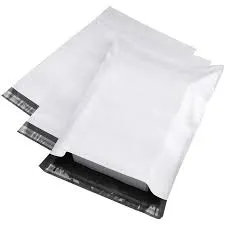biodegradable resealable bags
The Rise of Biodegradable Resealable Bags A Sustainable Solution for Packaging
In recent years, the increasing awareness of environmental issues has led to a significant shift in consumer behavior and corporate responsibility. Among various innovations aimed at reducing plastic pollution, biodegradable resealable bags have emerged as a promising solution. These bags not only offer convenience and functionality but also contribute to sustainability, paving the way for a greener future.
Understanding Biodegradable Resealable Bags
Biodegradable resealable bags are designed to decompose over time through natural processes, as opposed to traditional plastic bags that can take hundreds of years to break down. They are typically made from materials such as cornstarch, PLA (polylactic acid), or other plant-based substances that can provide similar properties to conventional plastics while being environmentally friendly. The resealable feature allows users to store items securely and conveniently, making them ideal for various applications, from food storage to household organization.
Environmental Benefits
The most significant advantage of biodegradable resealable bags is their positive impact on the environment. Traditional plastic bags contribute to a staggering amount of waste in landfills and the oceans, posing a threat to wildlife and ecosystems. According to the United Nations, around 300 million tons of plastic are produced each year, with a significant portion ending up in oceans and waterways. Biodegradable bags, on the other hand, are designed to break down into non-toxic components, reducing the overall plastic footprint.
When these bags are composted correctly, they can enrich the soil, thus contributing to a circular economy. Their biodegradability significantly lowers greenhouse gas emissions compared to conventional plastics, which can release harmful substances as they break down. By using biodegradable resealable bags, consumers can actively participate in efforts to reduce pollution and promote a more sustainable lifestyle.
Versatility and Practical Use
Biodegradable resealable bags come in various sizes and styles, making them suitable for many applications. Whether for packing snacks, storing leftovers, organizing household items, or even for shipping purposes, these bags can accommodate diverse needs. The resealable seal ensures that contents remain fresh, which is especially beneficial for food storage.
biodegradable resealable bags

Moreover, many companies produce customized biodegradable resealable bags, allowing brands to enhance their identity while showcasing their commitment to sustainability. This is particularly important for businesses looking to appeal to eco-conscious consumers who prefer environmentally friendly products.
The Consumer Shift Toward Sustainability
The demand for biodegradable products has significantly increased as consumers become more aware of environmental issues. Studies indicate that a large percentage of consumers are willing to pay a premium for sustainable products. As a result, companies are recognizing the need to adopt more sustainable practices, incorporating biodegradable materials into their packaging strategies. This shift not only addresses consumer preferences but also aligns with regulatory pressures aimed at reducing plastic waste.
Retailers and manufacturers are now more focused on transparency and sustainability in their products, which includes using biodegradable resealable bags. This not only enhances brand loyalty but also fosters a positive public image, essential for competing in today’s conscientious market.
Challenges and Considerations
Despite their advantages, biodegradable resealable bags are not without challenges. One primary concern is the lack of appropriate waste disposal infrastructure. In many regions, composting facilities may not be widely available, leading to biodegradable materials improperly ending up in landfills. Furthermore, the effectiveness of biodegradability can vary based on environmental conditions, such as temperature and humidity, which may impact decomposition rates.
Another challenge is ensuring that these bags maintain durability and functionality comparable to conventional plastic. Manufacturers are continuously working on improving the formulations and designs of biodegradable materials to meet consumer expectations while remaining environmentally friendly.
Conclusion
Biodegradable resealable bags represent a critical advancement in packaging technology, aligning convenience with sustainability. As consumer demand for eco-friendly products grows, so does the responsibility of manufacturers to innovate and produce alternatives that reduce environmental impact. While challenges persist, the potential benefits of biodegradable resealable bags are clear, providing a pathway toward reducing plastic waste and promoting a more sustainable future. By choosing these products, consumers can make a lasting positive impact on the planet, demonstrating that even small changes in our daily routines can yield significant benefits for the environment.
-
The Best Uses for Small Trash Bags in Daily LifeNewsJul.01,2025
-
Stylish Reusable Grocery Bags TrendsNewsJul.01,2025
-
Shipping Advantages of Using Bubble Envelopes BulkNewsJul.01,2025
-
How Compostable Mailing Bags Reduce Environmental ImpactNewsJul.01,2025
-
Environmentally - Friendly Bulk Poly MailersNewsJul.01,2025
-
Eco Friendly Custom Laminated Tote BagsNewsJul.01,2025
-
Have the freedom of customizing your custom mailers any way you want! Our dedicated packaging support will help deliver you the mailing experience you need to elevate your shipping experience to the next level! Start making a strong impression on your customers and stand out from your competitors! -
LIYA uses high quality raw materials which directly purchased from large enterprises domestic and overseas such as PetroChina, Sinopec, Sabic, Equate, ExxonMobil, Dow Chemical, Total, and Borouge, ensuring the price advantage and quality of the raw materials. -
LIYA uses high quality raw materials which directly purchased from large enterprises domestic and overseas such as PetroChina, Sinopec, Sabic, Equate, ExxonMobil, Dow Chemical, Total, and Borouge, ensuring the price advantage and quality of the raw materials.





